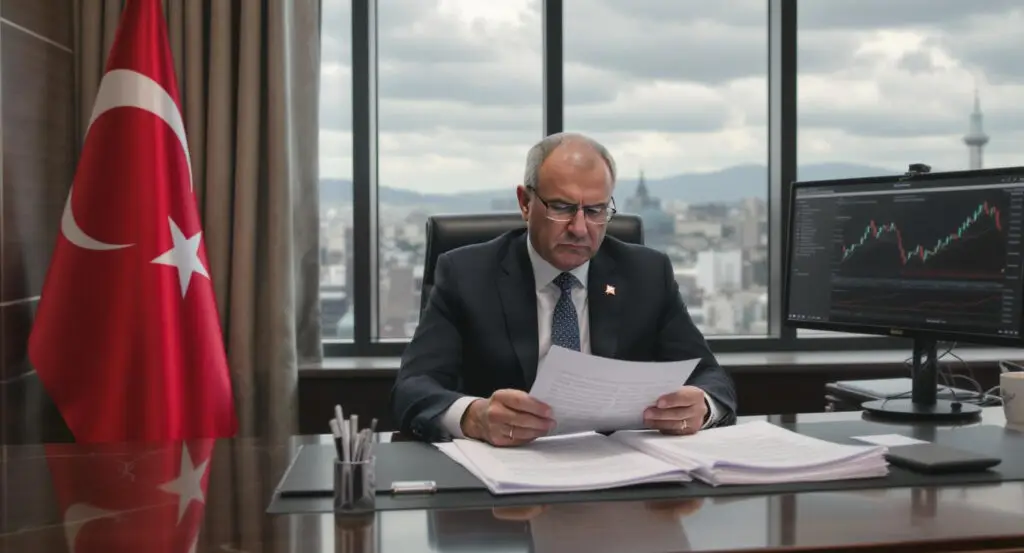Malta, a small Mediterranean island nation, is rapidly becoming the preferred European base for high-profile crypto companies seeking MiCA licenses. Weeks after Europe’s Markets in Crypto Assets (MiCA) regime came into force last December, Malta swiftly awarded licenses to major exchanges like OKX and Crypto.com. While securing a MiCA license in one country enables firms to operate across the entire European Economic Area, Malta’s quick embrace is drawing both interest and concern, with some industry stakeholders questioning if its light-touch approach to MiCA due diligence is too relaxed, potentially allowing companies to secure licenses too easily.
Malta’s MiCA Fast-Track: The ‘McDonald’s’ Analogy
Malta’s rapid issuance of MiCA licenses is drawing sharp criticism, with one industry CEO likening the process to “ordering food in McDonald’s.” This analogy, from Przemysław Kral, CEO of Poland’s largest crypto exchange, Zondacrypto, suggests a perceived lack of rigor in Malta’s regulatory process. The concern is that while MiCA aims for unified high standards across Europe, Malta’s approach might be prioritizing speed over thoroughness, potentially undermining the integrity of the licensing regime.
The Mediterranean Magnet: Why Crypto Giants Choose Malta
Malta is quickly solidifying its reputation as a preferred European hub for major crypto companies, attracting high-profile players like OKX and Crypto.com. Its appeal lies in its perceived nimbleness and welcoming regulatory environment, contrasting with the slower pace of other European nations. This strategic positioning allows firms to gain access to the entire 30-nation European Economic Area with a single MiCA crypto asset service provider (CASP) license, making Malta an attractive gateway.
Leveraging Legacy: Malta’s VFA Framework as a Shortcut
Malta introduced its own local regulatory framework for crypto in 2018, known as the Virtual Financial Assets (VFA) Framework, which has been recognized as quasi-equivalent to MiCA. This legacy regime provides a significant stepping stone for companies seeking MiCA designation. If a crypto firm held a local VFA license before December 30, 2024, Malta can offer a fast-track to MiCA approval and a “pre-authorization” status, expediting the process considerably.
Oversight Under Scrutiny: Speed vs. Substance in Licensing
While Malta’s ability to adapt quickly to regulatory developments is welcomed by firms seeking faster clarity, industry observers are raising questions about the substance and scale of its regulatory supervision. Liat Shetret, Vice President of Global Policy and Regulation at Elliptic, voiced concerns about whether these fast-tracked approvals are backed by sufficient enforcement muscle. She emphasized the need for skilled crypto enforcement teams that can effectively supervise and investigate licensed entities beyond the initial approval stage.
Giants Under Fire: OKX and Crypto.com’s Expedited Approvals
Among the crypto firms that have received expedited licenses in Malta are OKX and Crypto.com, both major global exchanges. OKX, a top-five exchange, claimed to be the first global player granted pre-authorization by the island in January. However, this came about a month before OKX paid half a billion dollars to settle compliance failings with the U.S. Department of Justice, raising questions about Malta’s due diligence. Similarly, Crypto.com, despite securing licenses in competitive markets, was fined by the Dutch central bank in 2023 for operating without a license.
France’s Warning: Battling ‘Regulatory Shopping’ in the EU
France is actively pushing back against what it perceives as a “fast-track” approach to MiCA licensing. Marie-Anne Barbat-Layani, President of France’s financial markets authority (AMF), warned against products approved by “peers with, let’s say, a rather quick pen.” She called for stronger coordination with the European Securities and Markets Authority (ESMA) to prevent “regulatory shopping,” where actors seek approval in jurisdictions where it’s easiest to obtain, emphasizing the need for a level playing field.
EU’s Crypto Growing Pains: Centralization vs. Diversity
The implementation of MiCA at a national level highlights the inherent tension within the EU between centralization and diversity among member states. While a federal Europe could offer economies of scale to compete globally, a decentralized approach respects individual countries’ specializations. Mark Foster, EU Policy Lead at the Crypto Council for Innovation, noted that this dynamic creates “growing pains” for crypto firms seeking clear regulatory frameworks, as they navigate varying national interpretations and enforcement capabilities.
The ‘Golden Visa’ Shadow: Parallels in Passporting Wealth and Crypto
Malta’s regulatory approach is also viewed through the lens of its controversial “Golden Visa” program, which allowed wealthy individuals to gain EU citizenship for a price. Though deemed illegal by Europe’s highest court due to money laundering and tax evasion concerns, some observers draw parallels to Malta’s crypto licensing. They question whether the island is “passporting” both wealthy individuals and cash-laden crypto companies into the EU with a light touch, raising concerns about potential supervisory arbitrage in the region.























